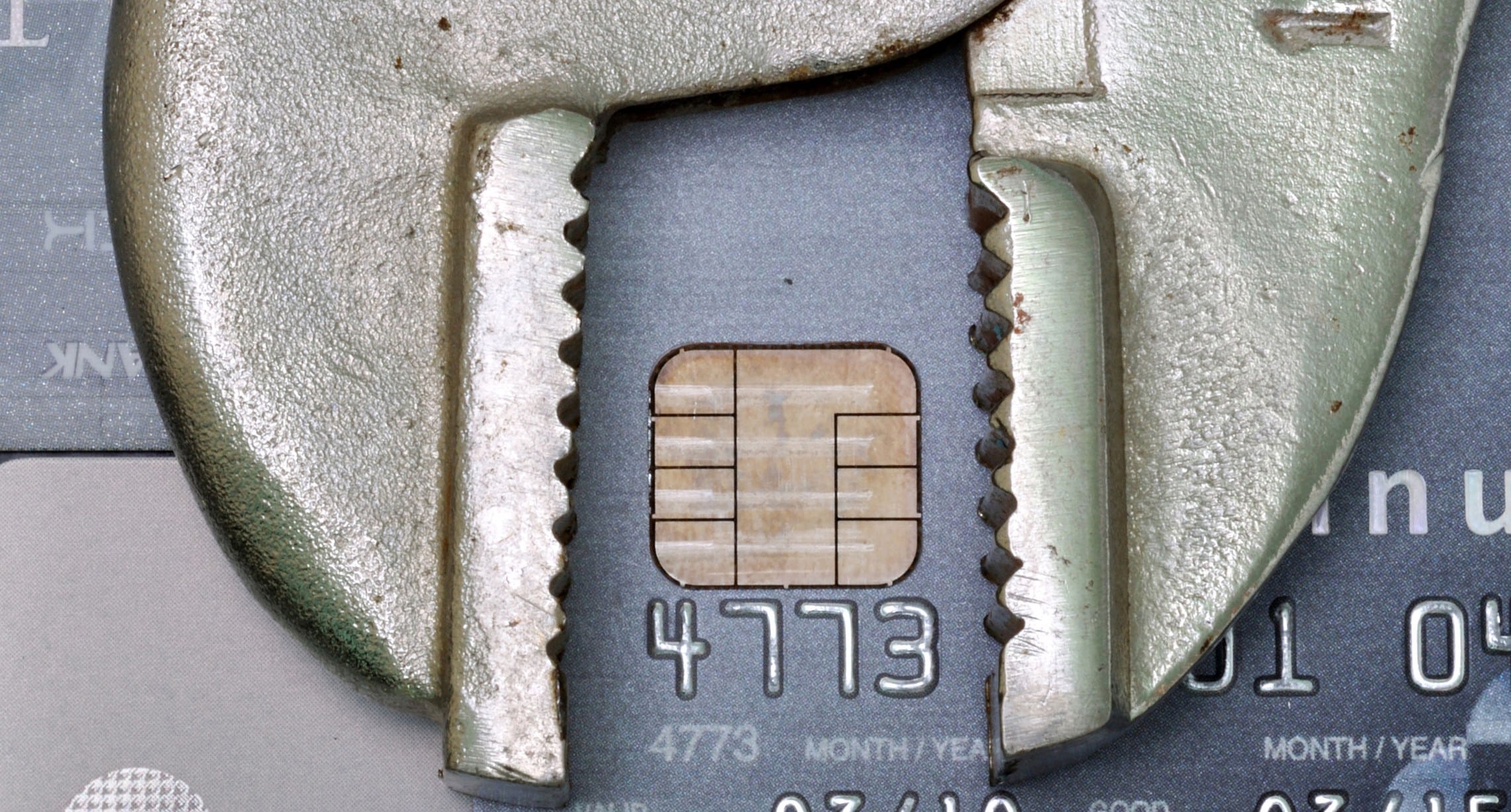
If you’ve ever missed a credit card payment or paid a bill after the due-date and noticed a delinquent mark on your credit report, you know how devastating the impact can be. Just one 30-day late mark can mean higher interest rates, reduced credit lines and being denied for a home, car or personal loan.
Repairing your credit can take up to 7 years and involves phone calls, mailing letters, emails and a lot of follow up with banks, credit reporting bureaus, creditors and other intermediaries.
A bad credit score can cost you some serious cash. Over your lifetime, you can lose hundreds of thousands of dollars to a bad credit score.
That’s a pretty shocking number, and it should be. Bad credit means higher loan interest rates and higher insurance premiums and that all adds up over the years. Bad credit can hold you back from achieving major life goals like buying a house, going back to school, taking a dream vacation or even retiring on schedule.
But what if you have bad credit because there are errors on your credit reports? Or there’s something that’s decades old? Or a single item that’s appearing multiple times? It seems pretty unfair to pay more interest on a credit card, car loan and mortgage because the credit bureaus have wrong information about you in their files. You can go through a dispute process with each of the credit bureaus on your own, but many people either don’t have the time or don’t understand how to make their case. This is when many consumers start looking into hiring a credit repair company.
What Exactly Is Credit Repair?
You can DIY your credit repair or hire a credit repair company or law firm to work on your behalf to fix your credit. To get to the heart of what credit repair is and how credit repair companies operate, we went to Randy Padawer, Consumer Education Specialist with Lexington Law, which represents consumers who want to repair their credit. (Full disclosure: Credit.com and Lexington Law are partners.)
“Credit repair leverages your legal right to three standards: Credit reports must be 100% accurate, entirely fair, and fully substantiated,” Padawer said. “Too many lesser credit repair companies skip over those last two standards — which involve communicating with your creditors — in favor of depending upon simple credit bureau disputes by themselves.”
Here’s a good example of when a reputable credit repair service can help you do something you may not be able to accomplish yourself. If you have a collection account that’s been sold to a few different debt collectors, it may appear on your credit report multiple times. That information is accurate, but having that one debt dinging your credit score multiple times may not meet the “fair” standard Padawer mentioned.
How Does Credit Repair Work?
A recent Federal Trade Commission study found that one in five consumers have an error on at least one of their credit reports. If you have items on your credit report that don’t meet the three standards Padawer mentioned, then you may want to consider credit repair — either DIY or via hiring a professional.
A good credit repair company will first pull your credit reports from each of the three major credit reporting agencies to pinpoint your credit issues. Why all three? Because each credit reporting agency has its own “data furnishers” (aka lenders, credit card companies, debt collectors, etc.) who report your credit information to them. And there may be errors that appear on one of your credit reports, but don’t appear on the others.
Once those errors have been identified, you’ll then give a credit repair company any supporting documentation you might have or need. For example, if there’s a bill on your credit report that your husband was actually responsible for under your divorce decree, you can use that document to prove it shouldn’t be impacting you.
In some cases it might be difficult to determine what to include as far as supporting documentation goes — that’s another way a credit repair company can help you. For example, if you’re a victim of identity theft and a fraudulent account is appearing on your credit report, it can be tough to prove it isn’t yours since you naturally don’t have any documents relating to the account.
When the bureaus and data furnishers receive the dispute and supporting information, they will then work with the credit repair company to determine if the item should be removed from your credit report. The major law dictating your rights when it comes to credit reporting is the Fair Credit Reporting Act, but it isn’t the only law on your side when it comes to credit repair.
“A good credit repair company will scrub questionable credit report items against other laws — like the Fair Credit Billing Act, which regulates original creditors; the Fair Debt Collection Practices Act, which oversees collection agencies; and others that address medical illness, military service, student status and other life events,” Padawer said.
How Long Does Credit Repair Take?
Getting negative, inaccurate information off of your credit reports is one of the fastest ways to see an improvement in your scores. Since credit bureaus have to respond and resolve a dispute within 30 days (there are a few exceptions that may extend this to 45 days), it’s a short timeline that can help consumers who want to buy a house, get a new car or open up a new credit card soon and don’t have the time to wait to build good credit in other ways.
But that doesn’t mean a credit repair company can tell you exactly when your credit score will improve since some consumers’ credit issues are much more complex than others.
“Since every case and credit report is unique, no professional firm can ethically predict an exact outcome,” Padawer said. “When picking a credit repair company to fix your bad credit, don’t ask about the future, but instead ask about what real clients have seen in the past.”
What Should I Avoid When Trying to Fix My Credit?
Fixing your own credit is absolutely an option and any ethical credit repair company will tell you that.
“If your situation is simple, and all you have are an obvious error or two, then you may just want to try a round of credit repair on your own,” Padawer said.
When trying to fix your credit, be clear and concise in your disputes with the bureaus and get your documentation in order. You can mail a dispute letter (remember, you’ll need to dispute each error with each bureau; they won’t clean up your credit report with their competitors!) or you can submit it online at each of the credit reporting agencies’ respective websites.
And if you decide you want to hire a credit repair company or a law firm like Lexington Law to help repair your credit, you need to make sure you’re working with a reputable, ethical company.
[CREDIT REPAIR HELP: If you need help fixing your credit but don’t want to go it alone, our partner, Lexington Law, can manage the credit repair process for you. Learn more about them here or call them at (844)346-3295 for a free consultation.]Are There Trustworthy Credit Repair Companies?
You may have seen ads for companies that promise your credit score will see “a 100-point jump immediately!” Sounds fishy, right? It’s because it is. In fact, it’s illegal for a credit repair company to promise results like that and any company that does so is one you should steer clear of.
There are other red flags you should keep your eye out for when looking for a reputable credit repair company.
“The FTC prohibits credit repair companies from charging for credit repair before any work is complete,” Padawer said. “Run fast from anyone who asks for money upfront or who promises a new credit file overnight.”
Here are some of the things you should want from a credit repair company:
- They know your rights and want you to understand them too. Before you sign any contract, a reputable credit repair company will explain your consumer credit rights to you and answer any of your questions regarding those rights.
- They want to know your story. It’s important for a credit repair company to understand why you want to dispute an item on your report so they can make sure those three standards Padawer mentioned — accuracy, fairness and full substantiation — are upheld by the data furnishers and the credit bureaus.
- They can explain, in detail, what they can do to represent you to the credit bureaus. Any good credit repair company knows what they can and can’t do for you and should be able to outline their services so you fully understand what you’re getting.
Under the Fair Credit Reporting Act, you’re entitled to an accurate credit report and the ability to dispute any errors you find. You can get free copies of your credit reports from each of the major credit reporting agencies once a year at AnnualCreditReport.com.
You can also check your credit scores for free each month using Credit.com’s free Credit Report Card. This tool breaks down your credit score into five major factors and gives you a grade for each. You can even get an action plan with tips on how to improve the credit factors that are pulling down your score. Checking your own credit reports and scores does not hurt your credit score in any way.


Pingback: Is Credit Repair Worth it? | No Identity Theft
Credit repair is such a difficult thing. So many people run away from the problem. I have in the past because we fail to teach young adults the proper use of credit and fixing my credit was not at all fun. I think this article should be place in more areas and we need to teach credit more openly.
Prevention is better than cure. I think one should focus on preventing Identity theft first. But once you are a victim of identity theft, you have to focus on credit repair. Credit repair is a long and tedious task but at the same time it is essential. A bad credit can harm you in many ways. The article is well written and it covered almost all the facets of credit repair.